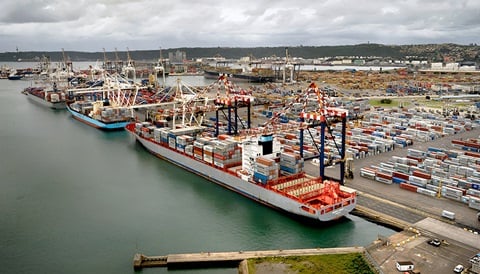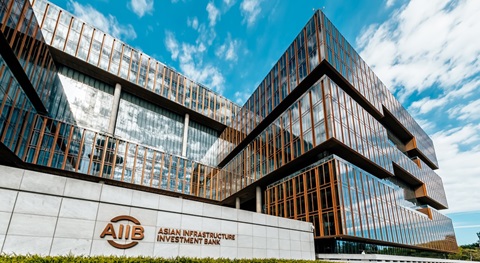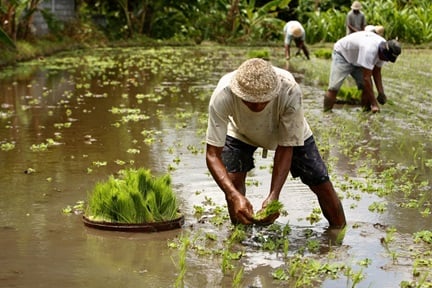Singapore strikes carbon credit deal with Rwanda
African nations emerge as key partners in Singapore’s climate strategy

Rwanda has become the latest African country to sign a carbon credit trading agreement with Singapore, following a similar deal with Ghana last year. The pact is the sixth such agreement Singapore has finalised since late 2023, as it seeks to meet its climate targets through international carbon markets.
Under the agreement, Singapore will be able to purchase carbon credits from projects in Rwanda to offset a portion of its greenhouse gas emissions, in line with its commitments under the Paris Agreement. Singaporean companies are permitted to offset up to 5% of their taxable emissions using carbon credits, provided the underlying projects meet the country’s environmental standards. Singapore currently levies a carbon tax of US$19 per tonne of carbon dioxide-equivalent, a figure that is expected to rise to between US$39 -US$62 by 2030.
The implementation agreement with Rwanda sets out a framework for generating and transferring carbon credits from mitigation projects that align with Article 6 of the Paris Agreement. Further details on the authorisation process and approved carbon crediting methodologies will be announced in due course.
Last year, GenZero, a Temasek-owned decarbonisation investment firm, signed an agreement with the Rwanda Green Fund to develop Article 6-compliant carbon projects in the country. The Rwanda Green Fund acts as the government’s primary vehicle for attracting and coordinating climate finance. GenZero has already backed carbon credit initiatives in Ghana and South Africa. In Ghana, it is working with Singapore-based AJA Climate Solutions to restore degraded and deforested land in the Eastern Region. Its South African initiative involves funding the replanting of a native succulent species across 100,000 hectares, aimed at ecosystem restoration and the removal of an estimated 30m tonnes of carbon dioxide over the project’s lifetime.
Singapore and Ghana began the process of authorising specific carbon credit projects last year under their bilateral agreement. Identified projects include clean water solutions that reduce reliance on firewood for boiling, energy-efficient cookstoves, and electric vehicle ventures.
Singapore has previously estimated it would offset around 2.5m tonnes of emissions annually between 2021 and 2030 through carbon credits. By 2030, total emissions are projected to reach 62.51m tonnes, with offsets helping to reduce that to the target of 60m tonnes. The country has also committed to cutting emissions further – to between 45m and 50m tonnes – by 2035, keeping it on course for its 2050 net-zero goal.
The Singapore–Rwanda partnership is a win-win in the fight against climate change. For Rwanda, it unlocks investment in clean energy and ecosystem restoration, strengthening livelihoods and driving sustainable growth. For Singapore, it provides a high-integrity channel to offset emissions, meet carbon-tax obligations, and advance net-zero goals.
More than compliance, this strategic alliance reinforces Singapore’s commitment to transparent carbon markets with African nations. It opens new investment frontiers that allow Singaporean investors to align with national climate goals.
Rwanda’s climate plan prioritises afforestation and ecosystem restoration, offering opportunities in reforestation, sustainable land management, and carbon sequestration. Therefore, investors can back afforestation, ecosystem restoration, and mitigation technologies like the Tubeho Neza cookstove programme, which has already reached six million beneficiaries, ensuring long-term returns while advancing climate resilience.
Beyond carbon markets, investors can also explore climate-smart technologies, financial tools, and sustainable infrastructure. Key areas include precision agriculture, renewable energy, and carbon capture, all aligned with Rwanda’s green growth strategy. Additionally, fintech solutions that streamline carbon credit transactions create avenues for investment in digital payment platforms, ensuring efficient credit transfers.
References
‘GenZero invests in restoration project in Ghana aiming to generate carbon credits with corresponding adjustments’, GenZero, 08 June 2023
‘Singapore, Ghana sign carbon credit agreement enabling firms to offset part of carbon tax’, The Straits Times, 27 May 2024
'Rwanda, Gold Standard GenZero to collaborate on article 6 carbon credit projects', GenZero, 19 September 2024
'Imperative secures funding for first phase of its project to restore 100000ha of land in South Africa', GenZero, 19 September 2024
‘Singapore and Ghana launch first call for project applications under IA on CC Cooperation’, National Climate Change Secretariat Singapore, 30 September 2024
‘Singapore’s $1 billion carbon credit push: A new path to net zero?’, CarbonCredits.Com, 02 April 2025
'Singapore signs Implementation Agreement on carbon credits collaboration with Rwanda', Ministry of Trade and Industry, Singapore, 06 May 2025
‘Rwanda inks carbon credit pact with Singapore, is sixth country to do so since 2023’, The Straits Times, 06 May 2025
'Rwanda and Singapore sign implementation agreement under Article 6 of the Paris Agreement', Ministry of Environment, Rwanda, Accessed on 12 May 2025
Project Tubeho Neza, DelAgua Tubeho Neza, Accessed on 20 May 2025







